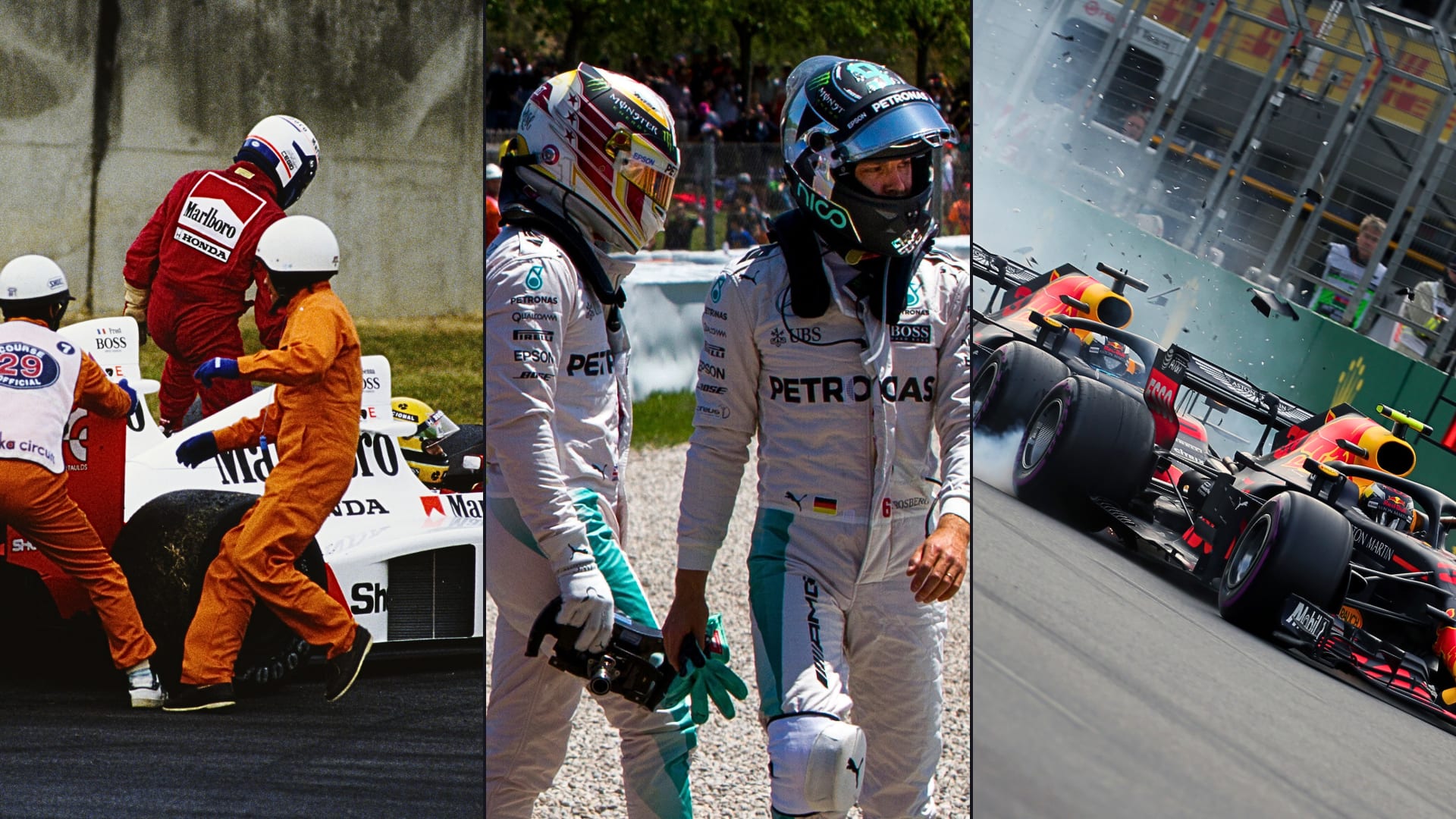In the high-stakes world of Formula 1, the roar of engines and the screech of tires have always been matched by the drama unfolding both on and off the track. It’s a sport built on precision, passion, and the relentless pursuit of victory. But a growing chorus of concerns from fans, pundits, and even those within the paddock suggests that the very soul of F1 is being eroded. The question on everyone’s mind is a troubling one: Has Formula 1 become more theater than sport, prioritizing manufactured entertainment over the sacred principles of sporting integrity?

This shift, many argue, accelerated dramatically after Liberty Media acquired the commercial rights to the sport in 2017. Their strategy was clear: broaden F1’s appeal to a new, younger, and more diverse global audience. And on the surface, they succeeded spectacularly. Through a savvy social media expansion, the wildly popular Netflix series “Drive to Survive,” and ambitious marketing campaigns, F1’s popularity skyrocketed. Yet, this commercial renaissance appears to have come at a steep price, with credibility being the first casualty.
The most glaring and infamous example remains the 2021 Abu Dhabi Grand Prix. The season finale was a nail-biting, winner-take-all showdown between Lewis Hamilton and Max Verstappen. What transpired in the final laps, however, felt less like a sporting contest and more like a finale scripted for maximum television drama. A late-race safety car, a controversial and unprecedented interpretation of the rules by the race director, and a last-lap overtake that crowned a new champion left millions of viewers stunned and divided. For many, it was the moment the mask slipped, revealing a desperate desire to create a spectacular finish, even if it meant disregarding established protocols and sacrificing fairness. The incident wasn’t just a controversy; it was a watershed moment that solidified the belief that the narrative had become more important than the rules.
But Abu Dhabi wasn’t an isolated incident. The entire 2021 season was peppered with decisions that seemed tailor-made to keep the championship fight alive until the very end. Lenient penalties were handed out for what many considered reckless driving in Saudi Arabia and Brazil, allowing the title protagonists to continue their battle with minimal consequences. Then there was the farcical Belgian Grand Prix, where a “race” consisted of a few laps behind a safety car in torrential rain, yet half-points were awarded—a decision widely seen as a contractual obligation to ensure an event officially took place, rather than a legitimate sporting outcome.
To combat processional races, F1 has introduced gimmicks like the sprint race format, and whispers of more radical ideas like reverse grids persist. Critics argue these are merely band-aid solutions that fail to address the fundamental problem: the cars themselves. Modern F1 cars have become too big, too heavy, and too aerodynamically complex to allow for close, competitive racing on many circuits. Instead of tackling this core issue, the sport’s governing bodies seem content to inject artificial excitement, further blurring the line between authentic competition and contrived spectacle.

This focus on image is also reflected in the media landscape surrounding the sport. Official commentary and punditry often feel sanitized, carefully sidestepping honest discussions about controversial stewarding decisions or potential rule breaches. The goal is to protect the brand, presenting a flawless product to the world. This creates a disconnect for knowledgeable fans who see inconsistencies but are fed a narrative of perfection, deepening the sense of distrust.
While these trends feel modern, the tension between integrity and entertainment has simmered for decades. History provides a worrying precedent. Think back to 1994, when the FIA allegedly turned a blind eye to illegal electronic aids to maintain competition. Or 2008’s “Crashgate,” where Renault orchestrated a deliberate crash to help their driver win, a scandal whose full details were conveniently delayed. Even “Spygate” in 2007, a massive espionage controversy, was handled in a way that protected the sport’s biggest names and teams as much as possible.
The very geography of Formula 1 is changing to fit this entertainment-first model. Hallowed, historic tracks with rich racing legacies are being pushed aside for soulless street circuits in glamorous locales like Miami, Jeddah, and Las Vegas. These venues are chosen not for the quality of racing they produce, but for the spectacle, the commercial opportunities, and the dazzling television images they provide. The disastrous 2023 Las Vegas Grand Prix, where a loose drain cover ended practice after just a few minutes and fans were sent home without refunds, stands as a stark testament to the fact that commercial interests and image protection now frequently outweigh the fan experience and event integrity.
At the heart of this issue lies a potential conflict of interest within the FIA, the sport’s governing body. The organization is tasked with both regulating the sport and promoting its commercial success. When these two objectives clash, it appears that integrity often takes a backseat. This was painfully evident in the handling of Red Bull’s breach of the financial cost cap regulations in 2022. The team was found to have overspent, an offense that strikes at the core of competitive fairness. Yet, the penalty was widely seen as lenient, a move many believe was made to avoid disrupting the championship narrative and alienating one of the sport’s most commercially valuable teams.

The application of penalties on the track further fuels this perception. Stewarding has become notoriously inconsistent. Similar incidents can result in vastly different penalties, leading to accusations that decisions are influenced by a driver’s popularity or the state of the championship. Big names often seem to get more leeway, preserving storylines and maximizing drama rather than upholding a consistent and fair rulebook.
Ultimately, Formula 1 is at a crossroads. It has captured the global imagination like never before, but in doing so, it risks losing the very essence of what made it great. It has become, as one critic described it, a “soap opera in racing overalls.” The challenge for Liberty Media and the FIA is to find a balance—to deliver the thrilling spectacle that new fans crave without betraying the sporting principles that its lifelong followers hold dear. If every controversy is spun into a storyline and every race is seen through the lens of its entertainment value, Formula 1 will cease to be the pinnacle of motorsport and instead become just another piece of content, indistinguishable from the scripted reality shows it seeks to emulate.
News
Reinhard Mey bricht sein Schweigen: Die fünf Stars, die der stille Poet mit 82 Jahren am meisten verachtet
Reinhard Mey gilt seit Jahrzehnten als die moralische Instanz der deutschen Musikszene. Mit seinen Texten über Freiheit, Würde und die…
Abschied vom Architekten der Anarchie: Malte Pittner mit nur 47 Jahren verstorben – Das stille Leiden hinter dem Deichkind-Wahnsinn
Die deutsche Musiklandschaft trägt heute Trauerflor. Eine Nachricht, die wie ein Paukenschlag durch die sozialen Netzwerke hallt, lässt Fans und…
Zwischen Macht und Wahrheit: Das hochemotionale Liebes-Geständnis der Alice Weidel erschüttert Deutschland
Es war ein Abend im September 2025, der als politisches und menschliches Erdbeben in die Geschichte der Bundesrepublik eingehen sollte….
Peter Maffay bricht sein Schweigen: Ein Leben zwischen Rock-Olymp, Familiendrama und der Suche nach Vergebung
Peter Maffay ist eine Institution. Seit über fünf Jahrzehnten prägt der in Rumänien geborene Musiker die deutsche Kulturlandschaft. Mit Hits…
Monatelanges Schweigen gebrochen: Josh Stanley offenbart die ganze Wahrheit hinter dem Love Island VIP Sieg
Es war der Moment, auf den Reality-TV-Deutschland wochenlang hingefiebert hat: Das große Finale von „Love Island VIP“. Als die Namen…
Vom Spargelfeld aufs Tanzparkett: Rekord-Bauer Friedrich Dieckmann plant seinen nächsten großen Coup bei Let’s Dance
In der Welt des deutschen Fernsehens gibt es Momente, in denen ein einziger Mensch die gesamte Dynamik einer Show verändert….
End of content
No more pages to load












